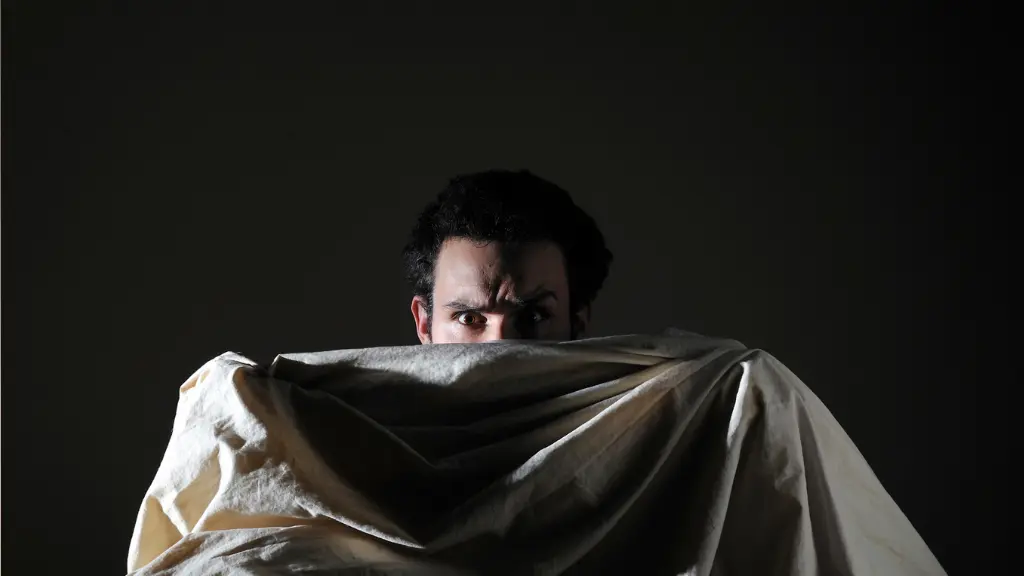We all know that feeling of isolation can take a toll on our emotional well-being, but a new study has revealed a surprising and alarming consequence of loneliness: it can literally give you nightmares. While loneliness is often associated with depression and anxiety, researchers are now finding that it can also significantly affect sleep quality, leading to more frequent and disturbing dreams.
In a society where social isolation is becoming more common—especially after the global pandemic—understanding the connection between loneliness and nightmares can offer new insights into how our mental state affects us even when we’re asleep.
You May Also Like: Sonam Kapoor Talks Jewellery, Fashion, and Personal Style: A Modern Icon’s Perspective
The Study: Understanding the Link Between Loneliness and Nightmares
Recent research published by psychologists delved into the relationship between loneliness and sleep disturbances, specifically nightmares. The study observed a large sample of participants over several months, tracking their feelings of loneliness, sleep patterns, and the frequency and intensity of their nightmares.
The findings were startling. Participants who reported higher levels of loneliness were significantly more likely to experience nightmares than those who felt more connected socially. The intensity of the nightmares also seemed to correlate with the degree of loneliness the individuals felt, suggesting that the deeper the sense of isolation, the more disturbing and frequent the nightmares.
Nightmares, according to the researchers, may serve as a manifestation of our emotional state, with loneliness playing a key role in the content and frequency of bad dreams. This suggests that when we feel emotionally isolated, our subconscious mind processes that feeling during sleep, leading to more vivid, distressing dreams.
Why Loneliness Affects Our Dreams
To understand why loneliness leads to nightmares, it’s essential to look at how our emotional state affects sleep. Loneliness is a form of chronic stress, which triggers the release of cortisol, a hormone that disrupts various bodily functions, including sleep. When we feel lonely, we are in a heightened state of alert, even if we are not consciously aware of it. This increased stress level makes it harder to achieve deep, restful sleep—the kind that helps our body and mind heal.
Additionally, loneliness often comes with heightened anxiety or even feelings of hopelessness. When these emotions accumulate, they don’t simply vanish when we go to bed. Instead, they can manifest in our dreams. The brain’s processing of emotions doesn’t stop when we fall asleep, and in fact, it becomes more active during REM (Rapid Eye Movement) sleep, a stage of sleep associated with vivid dreaming. If you’re dealing with emotional stress or unresolved feelings, such as loneliness, your brain is more likely to generate distressing dreams.
Moreover, people who experience loneliness often have less healthy sleep patterns overall. They may sleep for shorter durations, wake up more frequently, or have more trouble falling back to sleep after waking during the night. These disturbances in sleep cycles also increase the chances of experiencing nightmares, since REM sleep tends to occur more frequently during fragmented sleep.
How Loneliness Changes the Nature of Nightmares
Loneliness doesn’t just increase the likelihood of nightmares; it also changes the nature of them. Individuals experiencing chronic loneliness are more likely to have nightmares that center around feelings of rejection, abandonment, or isolation. For example, some report dreams in which they are chased but have no one to turn to for help, or they may dream of being left behind by friends and family. These types of dreams are a direct reflection of the emotions that loneliness evokes—fear of being alone and unsupported.
Lonely individuals may also experience nightmares that are more emotionally intense than the nightmares of those who feel socially connected. This heightened emotional response could be because loneliness amplifies feelings of vulnerability. When we are isolated, both emotionally and physically, we are more likely to feel unprotected, which translates into our dreams as feelings of fear or distress.
Interestingly, some studies suggest that people who feel lonely are also more likely to remember their dreams, particularly the negative ones. This could be because lonely individuals have more fragmented sleep and wake up frequently during the night, which increases the likelihood of recalling nightmares.
The Vicious Cycle: How Loneliness and Nightmares Feed Each Other
One of the most troubling aspects of the link between loneliness and nightmares is how they can create a vicious cycle. Experiencing nightmares often leads to poor sleep, which in turn worsens mood, heightens stress levels, and increases feelings of loneliness. The cycle perpetuates itself: the more isolated a person feels, the more likely they are to experience nightmares, and the more nightmares they have, the more lonely and anxious they become.
This vicious cycle can be incredibly damaging to mental health. Loneliness is already linked to a higher risk of depression, anxiety, and other mental health disorders. When nightmares are added to the mix, they contribute to the erosion of emotional well-being. People who experience frequent nightmares are often more fatigued, irritable, and less able to cope with daily stressors, further deepening their sense of isolation.
The Broader Impact of Loneliness on Health
The effects of loneliness go beyond sleep. Numerous studies have shown that chronic loneliness can have a significant impact on both mental and physical health. It has been linked to an increased risk of heart disease, weakened immune function, and cognitive decline. Additionally, loneliness is associated with higher rates of depression and anxiety, which can exacerbate the frequency and intensity of nightmares.
Loneliness can also negatively impact our perception of the world around us. When people feel isolated, they are more likely to interpret neutral or ambiguous social cues as negative, reinforcing feelings of rejection and exclusion. This skewed perception can extend to their dreams, as the subconscious mind reflects these fears and anxieties through nightmares.
Combating Loneliness to Improve Sleep and Mental Health
While the connection between loneliness and nightmares is concerning, it also opens up opportunities for improving sleep quality and mental health through meaningful social interactions and emotional support. Addressing loneliness can not only reduce the frequency of nightmares but also lead to overall improvements in mental health and well-being.
One of the most effective ways to combat loneliness is to foster social connections, even if they are small steps. Regular interactions with friends, family, or social groups can alleviate feelings of isolation and provide emotional support. Engaging in activities like joining a club, volunteering, or participating in group exercises can help build a sense of community, reducing the impact of loneliness.
For those who find themselves battling persistent feelings of loneliness, professional support can be crucial. Speaking with a therapist or counselor can help individuals navigate the emotions tied to loneliness and develop coping strategies that promote better mental health.
Mindfulness practices, such as meditation or deep-breathing exercises, can also be helpful in reducing the stress and anxiety that come with loneliness. These practices calm the mind, promote relaxation, and create healthier sleep patterns, decreasing the likelihood of experiencing nightmares.
Conclusion: Understanding the Emotional and Physical Toll of Loneliness
Loneliness is more than just a feeling; it’s a state that affects our emotional, psychological, and physical health. The discovery that loneliness can trigger nightmares sheds light on the profound ways our emotional state influences us, even during sleep. Understanding the link between loneliness and nightmares offers an opportunity to address not only our mental health but also the quality of our sleep.
As we become more aware of the impact of loneliness, it’s crucial to prioritize social connections, seek support when needed, and practice self-care. Reducing loneliness isn’t just about feeling better during the day—it’s also about sleeping better at night and breaking the cycle of nightmares that can haunt those who feel isolated.









